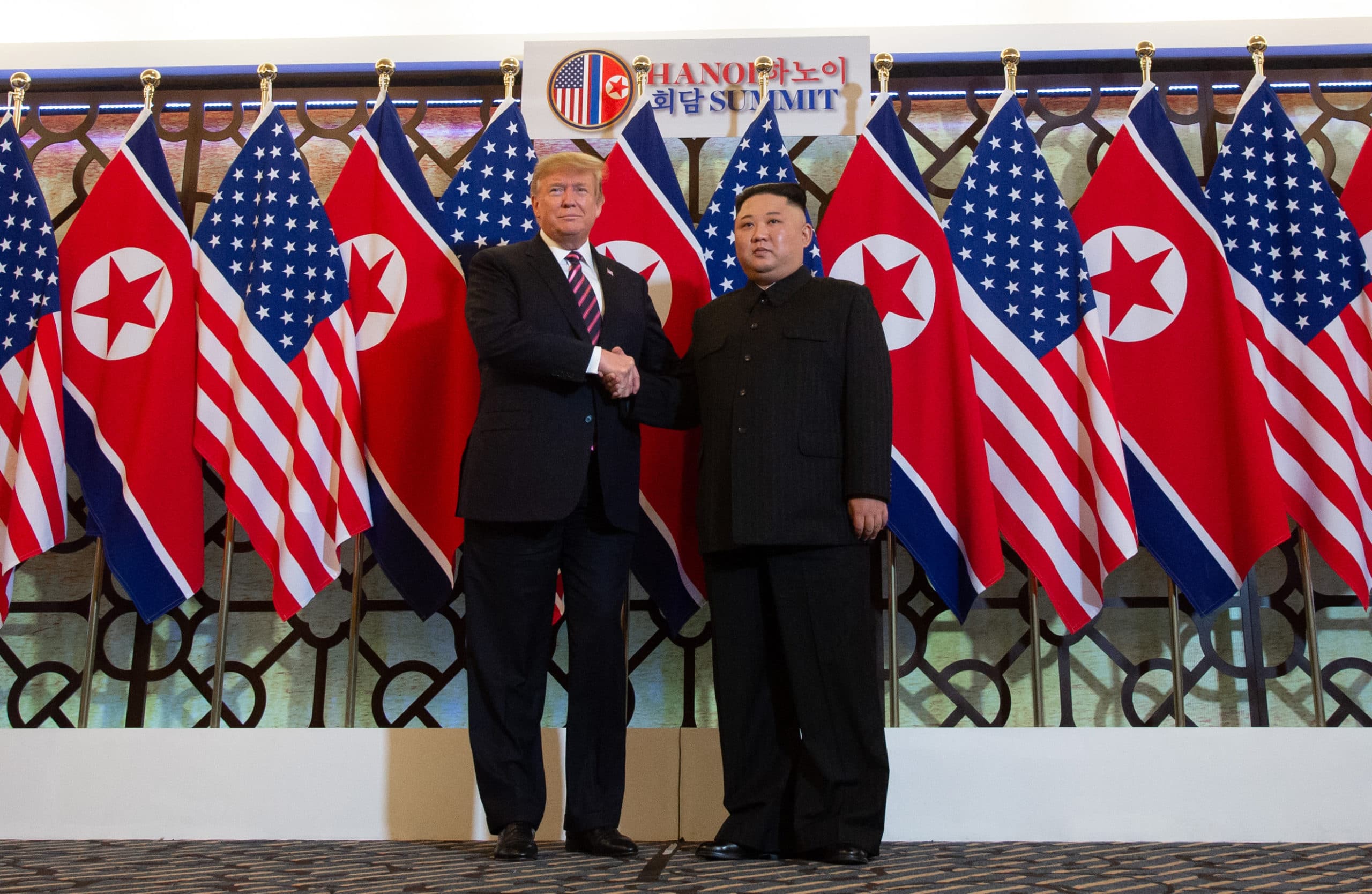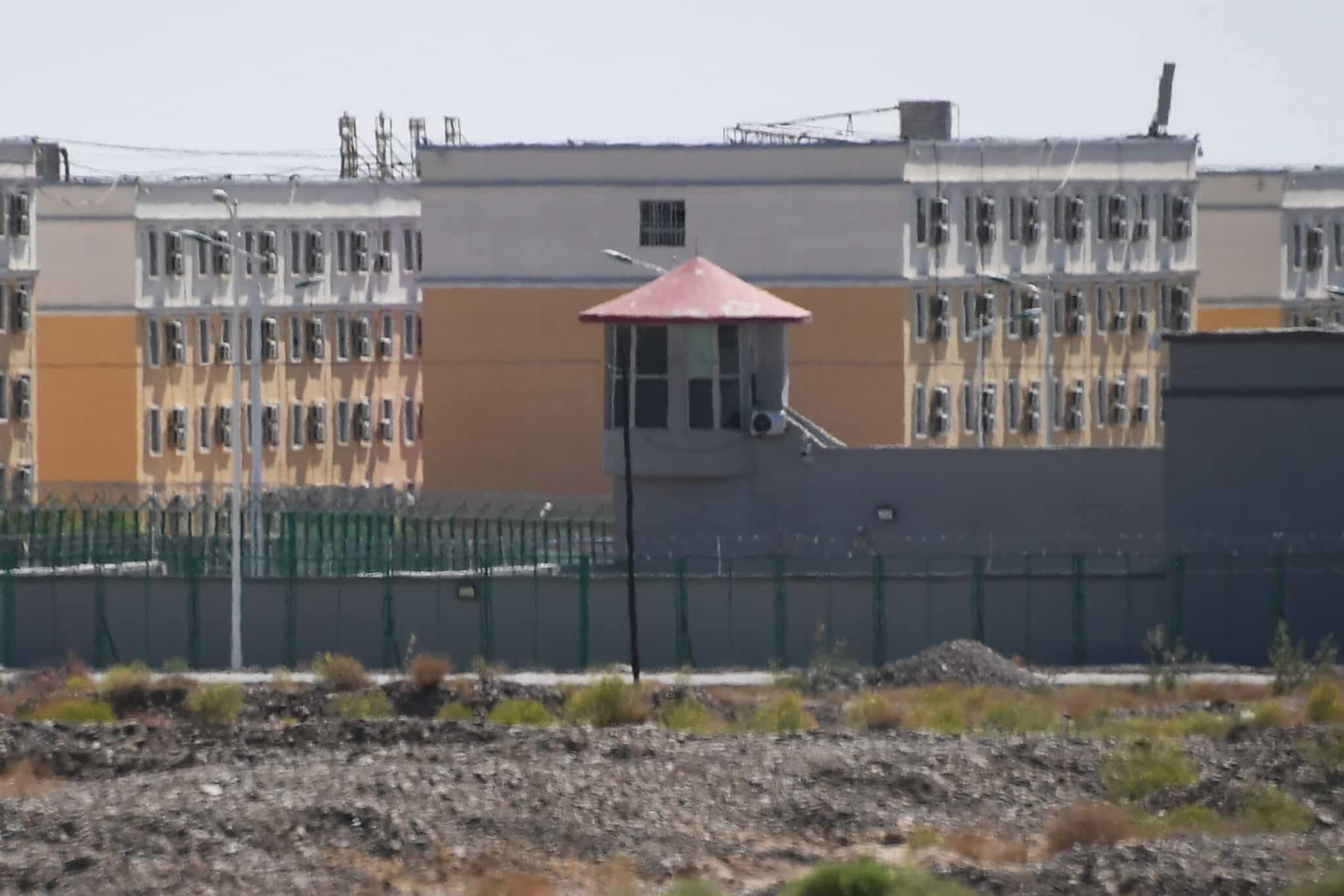January 14, 2021 | From Trump to Biden Monograph
Human Rights
January 14, 2021 | From Trump to Biden Monograph
Human Rights
Current Policy
President Trump advocated an “America First” foreign policy that often downplayed the human rights abuses of both Washington’s authoritarian allies as well as hostile regimes. Accordingly, the White House – with some notable exceptions – treated human rights as a distraction from America’s true national interests.
Trump sent the wrong message to some of the world’s gravest human rights violators. For example, Trump said he and North Korean leader Kim Jong Un “fell in love” after exchanging letters,1 and that Kim “loves his people.”2 Trump called his Egyptian counterpart, Abdel Fattah al-Sisi, a “great president” who is “doing a great job.”3 He described Turkish President Recep Tayyip Erdogan as a “friend of mine” who is “doing a very good job.”4 Trump even called Chinese President Xi Jinping a “very, very good man.”5 In response to a journalist who described Russian President Vladimir Putin as “a killer,” Trump retorted, “There are a lot of killers. Do you think our country is innocent?”6

President Trump shakes hands with North Korean leader Kim Jong Un before a meeting at the Sofitel Legend Metropole hotel in Hanoi, Vietnam, on February 27, 2019. (Photo by Saul Loeb/AFP via Getty Images)
Nevertheless, Trump imposed sanctions and criticized human rights violations in Iran, Cuba, China, Venezuela, and North Korea. In the case of Syria, Trump ordered airstrikes against the Assad regime in 2017 and 2018 to punish it for attacking its own population with nerve agents. In the case of Saudi Arabia, Trump imposed sanctions on key officials for the murder of Washington Post writer Jamal Khashoggi after bipartisan backlash to his initial downplaying of the killing.7 Of course, Trump declined to target the primary culprit in that murder: Saudi Crown Prince Mohammed bin Salman.
In the case of China, Trump imposed sanctions on Chinese officials for their role in concentration camps containing more than a million Uyghur Muslims in the Xinjiang region. Trump took this step after Congress in June 2020 overwhelmingly passed the Uyghur Human Rights Policy Act, requiring the president to impose sanctions. Trump said he refrained from sanctions until then for fear they would undermine a trade deal with Beijing.
In the case of the regime in Iran, the Trump administration consistently criticized the regime’s systematic human rights abuses. This issue was often ignored by President Obama, who failed to support the 2009 Green Revolution. The Trump administration, by contrast, repeatedly expressed support for Iranian protesters.
The administration formalized its human rights policy by establishing a Commission on Unalienable Rights, which aims to enshrine “natural” human rights as an “urgent” priority of U.S. foreign policy.8 However, the commission focused on “principle, not policy” – leaving many important human rights challenges unaddressed.9
Trump’s approach to human rights was largely consistent with the foreign policy school of realism. This tradition emphasizes the centrality of states and power to international relations, a premise often leading to the conclusion that the pursuit of idealistic causes can prove impractical or counterproductive. To be sure, realism comes in many varieties, and self-described realists have been among the Trump administration’s most vocal critics. Yet Trump’s instincts on human rights exhibited decidedly realist characteristics.
Assessment
Even under the best of circumstances, the United States is likely to fall short of its ideals on human rights. Washington often must make difficult decisions regarding when to pressure both foes and allies and when to be more conciliatory. But the willingness to overlook or condone human rights abuses weakens U.S. credibility and promotes a moral relativism that undermines U.S. leadership.
In most cases, the Trump administration failed to achieve any discernable geopolitical benefits by ignoring human rights abuses. Nor did Trump’s expressions of personal warmth for abusive leaders have a beneficial impact. North Korea clings to its nuclear arsenal while continuing to threaten and provoke its neighbors. Russia poisons domestic critics such as Alexei Navalny while bullying its neighbors and committing atrocities in Syria. Turkey’s repressive policies at home endure, while its government aggravates conflicts across the Levant and Eastern Mediterranean.

A Syrian Kurdish woman walks with her child past the ruins of the town of Kobane, also known as Ain al-Arab, on March 25, 2015. (Photo by Yasin Akgul/AFP via Getty Images)
But most cases are not all cases. Trump’s dealings with the Gulf monarchies demonstrates why consistency may not always be the ideal policy with human rights. The United States traditionally relies upon Saudi Arabia, the United Arab Emirates, and other Sunni Arab regimes to counter Iran, ensure the unhindered flow of oil, and house American military bases. The Gulf monarchies also recently led the way in making peace with Israel. And while Saudi Arabia maintains several ugly black marks on its human rights record, the country has enacted reforms that have widely served to benefit its people.
It makes little sense for Washington to alienate these flawed friends the way it does with an avowed enemy regime such as Iran, Russia, North Korea, or China. These regimes engage in human rights abuses on an entirely different scale. Still, balancing human rights with the pursuit of other strategic objectives does not require a wholesale abandonment of human rights as a matter of principle and policy.
To his credit, Trump (albeit under political pressure) applied sanctions pursuant to the Global Magnitsky Human Rights Accountability Act against 17 Saudis who played a role in the Khashoggi murder. To his detriment, Trump issued evasive and misleading statements about the crown prince’s likely foreknowledge of the crime.
Trump’s obfuscatory statements unfortunately gave ammunition to defenders of the regime in Iran who argue that Saudi human rights violations are no different than Tehran’s systematic human rights abuses. Legitimate criticism of authoritarian states such as Saudi Arabia could have helped the Trump administration gain greater bipartisan support in condemning Tehran’s violations, such as the execution of wrestling champion Navid Afkari in September 2020.
Even if Trump placed less emphasis on human rights, his advisors remained committed to the issue. Trump officials widely understood that unrestrained abuses can exacerbate threats to U.S. interests by fueling the conditions that have led anti-American regimes to emerge in the first place. As U.S. Special Representative for Iran and Venezuela Elliott Abrams has written, “The lesson is not that any existing [repressive] regime must be supported lest something worse arrive, but that without reform something worse eventually will, filling the space that regime collapse has created.”10
Recommendations
- Reinvigorate America’s role as a human rights leader. Washington has an opportunity to repair U.S. credibility on this issue, because that credibility derives from the democratic principles Americans practice at home. Including human rights as an integral element of U.S. foreign policy complements, not undermines, American national security objectives.
- Deliver a major address that explicitly enshrines human rights as a pillar of U.S. foreign policy. While always maintaining a clear distinction between friend and foe, President-elect Biden should make clear that human rights concerns will be an important factor in shaping America’s bilateral relationships.
- Maintain a range of intermediate options to pressure authoritarian allies on human rights without damaging the overall relationship. Partnerships with certain authoritarian states may be a strategic necessity, but the United States can still employ targeted sanctions as well as private and/or public criticism to address human rights violations.
- Use authorities provided by the Global Magnitsky Human Rights Accountability Act to sanction individuals and entities responsible for serious human rights abuses and corruption around the world. To date, the United States has imposed such sanctions against human rights abusers in Saudi Arabia, Russia, Venezuela, Myanmar, and China, to name a few. The Biden administration should continue to use Magnitsky sanctions against human rights violators as circumstances warrant.

This photo taken on June 2, 2019, shows buildings at the Artux City Vocational Skills Education Training Service Center in China’s northwestern Xinjiang region, believed to be a re-education camp where mostly Muslim ethnic minorities are detained. (Photo by Greg Baker/AFP via Getty Images)
- Prioritize China’s brutal repression of its Uyghur Muslim minority. Through sanctions and tough diplomacy, the Biden administration should make clear that Beijing must halt its persecution of the Uyghurs.
- Address Tehran’s human rights abuses as part of any future negotiations with the Islamic Republic. Biden has stated that he would reenter the 2015 nuclear deal with Iran, formally known as the Joint Comprehensive Plan of Action (JCPOA), if Tehran complies with its terms. He has also stated that he would seek, as part of new negotiations, to extend and strengthen the JCPOA’s provisions.11 In this context, Washington should make clear that Tehran must end its human rights abuses.
- Reform the UN Human Rights Council. The global body, from which the United States withdrew in 2018, includes brutal dictatorships – such as China, Cuba, Gabon, Pakistan, Russia, and Uzbekistan – among its members, making a mockery of human rights norms. The council also focuses excessively on Israel – falsely describing the Jewish state’s efforts to defend itself as human rights violations – while ignoring major abuses by rogue regimes. The Biden administration should pressure the council to reform and should refrain from rejoining it in the absence of meaningful improvements.
